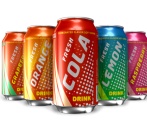
New York City appears to be leading the fight when it comes to the soda ban. In the spring of 2012 the Mayor proposed banning sugary drinks from restaurants, stadiums and street carts that are more than 16 ounces. The ban would apply to big drinks that contain 25 calories per 8 ounces. If a restaurant were to break the ban it would lead to a fine of two-hundred dollars. Mayor, Michael Bloomberg has said the ban is needed to help fight obesity.
Trying to Act as a Preventative?
A number of studies, including one conducted at UCLA back in 2005 directly link the drinking of soda pop to obesity. The researchers in California stated the problem is that people are drinking soda like it is water and soda has no nutritional value.
In many cases consumers develop something called “leptin resistance” when they drink too much soda. This resistance makes them crave even more sugar. The obesity issue that could result is further amplified by the fact that there are no vitamins and minerals in soda pop. Some may argue that there aren’t any vitamins and minerals in water either; however, water does hydrate us, where as soda is not good at hydrating.
Not everyone thinks a soda ban is the right preventative step when it comes to controlling obesity. There are some nutritional experts who say juice is just as bad as soda and that fast food also needs to be addressed. Those who support the New York ban argue that you have to start somewhere.
The Centre for Consumer Freedom, an organization that supports the restaurant and beverage industries immediately lashed out at the idea of a soda ban in New York calling the city’s Mayor a Nanny, as opposed to a leader.
RELATED READING: Health Conditions That Predict the Weather
New York isn’t the only state that sees soda as a health issue though. Here is what is happening in other areas across the United States:
• Los Angeles: considering a ban of soda in vending machines at libraries and parks
• Chicago: some hospital cafeterias are taking soda out of vending machines and replacing them with healthier alternatives.
• Richmond California: residents will soon vote on whether they want the city to implement a one-cent-per ounce tax on beverages with added sugar.
•Boston: several hospitals are reducing soda options at vending machines. In Cambridge, Massachusetts the public health department is examining a ban similar to New York City’s soda ban proposal.
A report by the American Medical Association estimates that 46 per-cent of the nations consumption of added sugar comes from beverages. However, many doctors treating people with obesity say a soda ban should just be the beginning; that other preventative steps need to be taken to ensure healthy weight and good intake of vitamins and minerals. Obesity costs the American medical system 190 billion dollars a year and it costs citizens their lives.